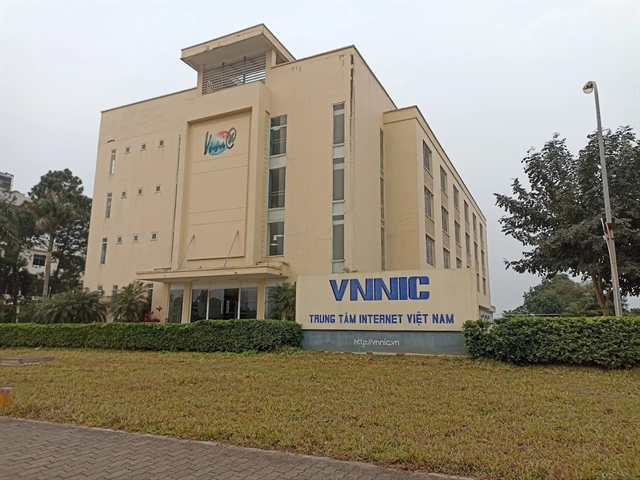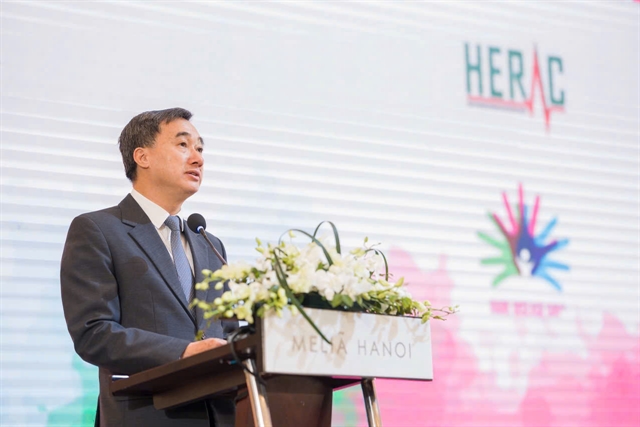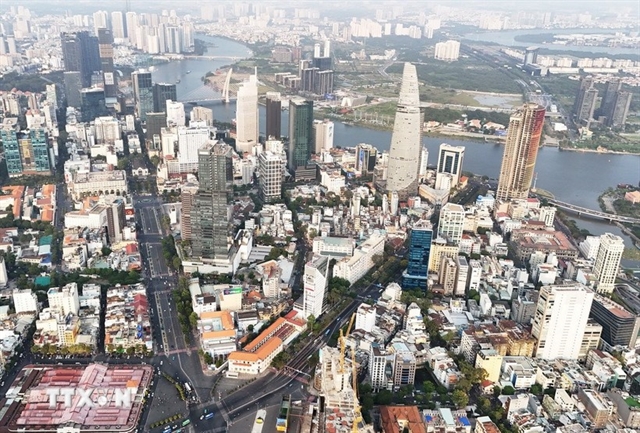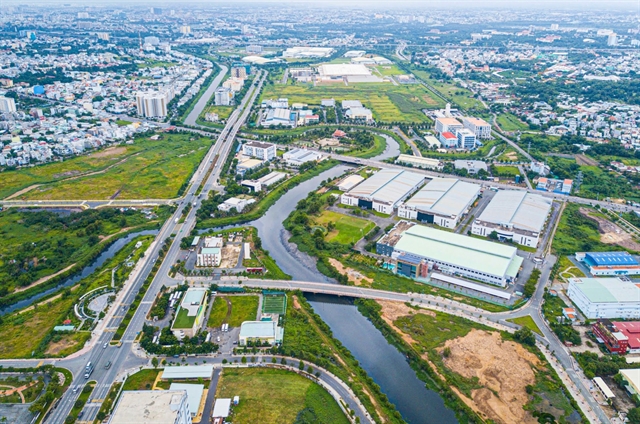 Economy
Economy

Smarter logistics are key for Việt Nam to advance in the global value chain amid the fourth industrial revolution and the COVID-19 pandemic, experts told the Vietnam Business Summit 2020 yesterday in Hà Nội.

|
| The automated sortation system of delivery firm Giao Hang Nhanh (GHN) with capacity of 40,000 orders per hour in HCM City. Smarter logistics are reported to be key for Việt Nam to advance in the global value chain. — Photo courtesy of the firm |
HÀ NỘI — Smarter logistics are key for Việt Nam to advance in the global value chain amid the fourth industrial revolution and the COVID-19 pandemic, experts told the Vietnam Business Summit 2020 yesterday in Hà Nội.
The summit was held by the Việt Nam Chamber of Commerce and Industry (VCCI) with the theme of 'Digitalised Vietnam: Toward Resilient, Responsive and Sustainable Development'.
"The logistics industry is a bottleneck of development due to the high cost," said VCCI chairman Vũ Tiến Lộc, nothing that Việt Nam had high logistics costs compared to the region and world.
As a technological breakthrough in logistics development would greatly aid the industry, Loc urged Viet Nam to speed up the journey towards smart logistics.
According to data from local research and advisory firm RIF D&B, Việt Nam's logistics industry was a competitive sector with a growth rate of 7.4 per cent, adding the local logistics industry tended to have positive growth in recent years.
Shige Sakaki, a senior World Bank transport specialist, said Việt Nam rose from 64th place two years ago to 39th globally in the bank's ranking of the logistics service performance index, which was an encouraging sign.
However, Sakaki also pointed out some problems like the lack of labour resources and emissions pollution for the industry, suggesting Viet Nam should aim towards better infrastructure, customs, skills and regulations for the industry.
“The industry needs new technologies to meet the requirements of e-commerce, cold supply chains, automation in warehouse management as well as urban logistics sectors that need further development," said Chairman of the Việt Nam Association of Logistics Services Lê Duy Hiệp.
Mentioning smart technology, CEO of Smartlog, Đỗ Huy Bình told the summit:
“Việt Nam is only in a very first stage of the digital economy and there are many things for the logistics industry to develop to meet the increasing development of such the future economy when all is connected.”
“As Việt Nam has not the all-in-one database, it is very difficult for the industry to become smart,” Bình added.
Also at the summit, experts mentioned agriculture as a development driver for the country and the high-tech agricultural development would help increase the yield and quality of agricultural products and help meet increasing demand.
Talking about high-tech agricultural development, Trần Hữu Quyền, chairman of VNTP Technology, said in recent years, some big firms in Việt Nam have imported high-tech agriculture from countries such as Brazil and Japan for local production while technologies from local tech firms also helped people and small businesses access technology and reduce investment costs.
"Viet Nam does not have a national agricultural map for a better and clearer strategy to develop the whole industry in a smarter way. The problem has made local farmers produce spontaneously, causing losses from the overlapping production at the same time," Quyền warned
“With incentive policies tech firms will participate in the industry and help local agriculture producers go digital," Quyền said.
At the summit, Deputy Prime Minister Trương Hòa Bình said: “To promote economic development, the Government of Việt Nam strives to build a government for tectonic development, integrity, decisive action and service to the people, creating a favorable business investment environment.
"To promote the digital economy and digital society towards sustainable development, the Government will support digital infrastructure, information technology and communication to train high-quality and skilled human resources to bring the digital economy's contribution to 20 per cent of the country's GDP by 2025," Bình added.
The deputy PM said the Government would also prioritise investment and rapid implementation of infrastructure projects, especially strategic infrastructure and digital backbone infrastructure in terms of quantity, quality and consistency.
According to the summit organisers, recommendations at the summit will be submitted to ASEAN leaders, who are gathering online for the 37th ASEAN Summit, so that more effective measures will be outlined to support the business community. — VNS




